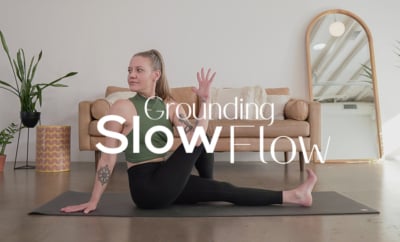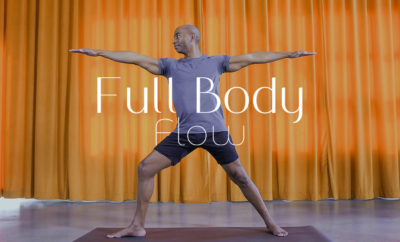Consensual Non-Monogamy: 10 Tips for Opening Up Your Relationship

The path to consensual non-monogamy comes in many different ways. Some people discover and explore non-monogamy while single. Many others discover that they are non-monogamous, or that they want to explore non-monogamy, while already in a monogamous relationship.
Asking your partner to open up your relationship can be terrifying. You, of course, don’t want to hurt them or to damage your relationship.
Opening up a relationship is a challenging proposition, even for healthy couples.
While it can be a very difficult transition, it is possible to explore this concept in your relationship in ways that are more successful and empowering for both partners.
How Do You Open Up Your Relationship to Consensual Non-Monogamy?
Figuring out how to start the process can be daunting though. Below are ten tips to open up your relationship in a healthy and supportive way.
1. Start From a Healthy Relationship
Consensual non-monogamy will not save your relationship. If you are experiencing problems in your relationship, opening it up will likely only intensify the existing problems and create more problems.
The strongest open relationships start from a place of strength and connectedness.
Should We Be Monogamous? The Verdict Is Out
Opening up a relationship is a challenging proposition, even for healthy couples. You can be certain that you will encounter some struggles along the way, but as long as you’ve started from a healthy place, you are in the best position to work through it together.
2. Figure Out Your Individual Goals and Values
Before you open up your relationship, it is vital you know what your goals and values are.
If you’re unsure of what you want and what your values are, it will be difficult to navigate the many (yes, many) conversations you will have with your partner while navigating opening your relationship.
When you are clear about your goals and values, it will make making decisions much easier. If you’re unsure where to start, I would highly recommend taking some personality type tests such as, Myers Briggs, DISC, The 5 Love Languages, Enneagram Types, and/or Emotional Intelligence.
This Is What’s Great (And What’s Hard) About Each Enneagram Type in Relationships
Keep in mind many of these tests use problematic language considering the culture we currently live in. They are not as progressive as some of us are, and many of them are working to correct this in future revisions.
However, they are still quite useful as a starting point in helping you to learn more about who you are, what you want, and what your values are.
Want to learn your love language? Take this quiz! Want to discover which Enneagram type you are? Find out here!
3. Define Labels and Words
Regardless of how long you’ve been in a relationship with your partner, you likely define labels and words differently.
My partner and I have been educators in the polyamorous community for five years and each time we teach a class, we meet people who define polyamory differently than we do.
Terms like polyamory, swinging, dating, sex, and open relationship can hold different meanings for your partner than they do for you.
For example, the term open relationship can mean occasionally getting to go out to a movie with someone other than your partner or it could mean engaging in multiple committed and sexual relationships.
Terms like polyamory, swinging, dating, sex, and open relationship can hold different meanings for your partner than they do for you.
When having a conversation about opening up your relationship, be sure to define exactly what you mean to ensure a better conversation and avoid miscommunication.
4. Learn and Grow Together Through Non-Monogamy
Healthy and successful consensual non-monogamous relationships don’t just happen on their own. They are nurtured and grow when both partners put in real effort. If one or both of you are new to consensual non-monogamy, then it is a great time for you to learn together.
Seek out and attend local non-monogamy support and discussion groups. You can find those by searching Meetup.com, Facebook, and Reddit. You can learn a great deal from other’s experiences and viewpoints.
Consensual non-monogamy will not save your relationship.
Take what you learn and use it as a conversation starter. You will learn more about yourself and your partner.
Likewise, there are tons of books and blogs available for learning more about the various forms non-monogamy.
In particular, I would recommend:
- Open: Love, Sex, and Life in Marriage by Jenny Block
- Opening Up: A Guide to Creating and Sustaining Open Relationships by Tristan Taormino
- My Life on the Swingset: Adventures in Swinging & Polyamory by Cooper S. Beckett
- Reading these resources together with your partner can be very helpful in learning what might or might not work for you both.
5. Use “I” Statements
When used correctly, speaking in “I” statements can foster positive and vulnerable communication in your relationship. Vulnerability and positive communication are the foundation to a strong and healthy relationship.
The use of “I” statements (or messages) focuses on the beliefs and feelings of the speaker rather than the thoughts and characteristics that the speaker attributes to the listener.
For example, rather than saying, “You made me jealous,” you would say “When you said you wanted to go on a date with him, I felt jealous.”
When using “I” statements, you are taking responsibility for your emotions and reactions. It is difficult and it often requires you to be open and honest about things you’d likely rather not say. But you and your relationship will grow from having done so!
6. Establish Good Boundaries Before You Need Them
Setting good personal boundaries is a critical aspect of a healthy relationship. Boundaries protect your emotional, physical, and mental health by setting a clear line between what is you and what isn’t you.
Boundaries can be physical or emotional. It is important that you set boundaries which no one else could ever violate.
Rules are constraints or expectations you put on someone else. Boundaries are your personal, invisible, force field which you are in charge of protecting.
For example, a good boundary is “I will not date someone who lives more than an hour away from me,” or “I will not have sex with my partner if they have had sex with someone else that day.” No one can cross either of these boundaries but you.
Take Control of Your Life and Set Healthy Boundaries – This Therapist Explains How
In contrast, statements like these, “I don’t want my partner to have sex with anyone but me,” or “I don’t want my partner to take anyone else to our favorite restaurant,” are rules.
Rules can easily be broken by either party who commits to them and therefore do not protect you in the same way a healthy boundary can. Rules are constraints or expectations you put on someone else.
Boundaries are your personal, invisible, force field which you are in charge of protecting.
7. Discuss Your Goals for Non-Monogamy
Once you each have a good understanding of your individual goals and values, it is important to discuss your goals as a couple. This step is important as it will help you to see if you have the same aspirations with regards to opening up your relationship.
It is important to note here that it is normal for you to each have different goals as you’re each your own person.
Also, in terms of dating, setting a goal for fairness between you each isn’t a good goal.
Instead, be specific (for example, we want to read 6 books together this year), and create goals that focus on meeting each partner’s needs, even though that will likely look different for each person.
Vanessa Marin, a licensed psychotherapist specializing in sex therapy, suggests considering these questions:
-
-
- Are you open to your partner having purely sexual relationships with other people, or can there be dating and/or romantic relationships involved? (This is a huge question that deserves careful consideration.)
- Do you want to know about your partner’s experiences with other people? What specific information do you want to be told or not told?
- How will your partner find other partners? (For example, maybe you don’t want your partner to put up an online dating profile in case you have friends who might see it.)
- Are there certain people who are off the table? (For example, maybe you wouldn’t want your partner to hook up with people you know.)
- How will your partner protect themselves and their other partners from STIs and pregnancy (if applicable)?
- How often can your partner pursue sexual relationships with other people?
- Are certain sexual activities on or off the table?
- Are you going to tell other people in your life about your arrangement, or keep it a secret?
- How will you support each other when strong emotions come up, or if one partner has questions about continuing the arrangement?
-
8. Don’t Judge Emotions as Good or Bad
All emotions are just that, emotions. They are not good or bad, they simply are a response to some event. Often when people are in the midst of opening their relationship they will experience jealousy, envy, and fear.
Our culture has taught us to label each of those emotions as bad because of the way in which they make us feel. Similarly, emotions like excitement, joy, and glee are labeled as good.
The problem with labeling emotions as either good or bad is that you’ve automatically attached negativity to an array of emotions. Not only that, when you attach the “bad” label to an emotion, it becomes very easy to then attack yourself for feeling said emotion.
Rather than labeling an emotion, ask yourself why you reacted the way you did and explore past experiences which might have led you to your reaction. Remove the attachment to label them and be kind to yourself. Emotions are not good or bad. They just are.
9. Acknowledge Your Monogamy Mindset
You may not consciously realize it, but you have been inundated with ideas about how relationships are “supposed to be” from the day you were born.
Almost every facet of our culture revolves around monogamy. While you might know this, there is a difference between knowing something and reprogramming your subconscious to accept and acknowledge non-traditional ideals.
There are many things to consider when you are thinking about opening up.
Are you comfortable with your partner spending nights away from you? Do you expect to be the first (or only) person your partner shares good or bad news with? Are you comfortable being alone? How do you feel about your partner vacationing with someone else?
All of these things are outside of the monogamy norm and, as such, it may take time for you to learn how you truly feel about them aside from what our culture says.
10. Communicate, Communicate, Communicate!
Communication is, by far, the most critical tool in your relationship toolbox. Regardless of your relationship type (monogamous or non-monogamous), communication can, and likely will, make or break a relationship.
When you and your partner aren’t communicating properly, issues tend to fester and resentment grows. It can be very difficult to bring up embarrassing issues or to admit feelings such as jealousy or envy. It can also be difficult to tell your partner something they might not want to hear.
5 Affirmations to Balance Your Throat Chakra for Clear Communication
However, when you allow yourself to be vulnerable with your partner and share uncomfortable feelings, you grow stronger and the connection between you and your partner grows stronger as well.
The most successful relationships are ones where the people involved develop creative and unique ways in which to communicate with each other.
When you open up your relationship, there will be many challenges and struggles along the way. It is imperative that you communicate about your experiences and feelings throughout this process.The most successful relationships are ones where the people involved develop creative and unique ways in which to communicate with each other.
Set up a scheduled check-in time weekly/bi-weekly/monthly with your partner to discuss what is working and not working as you’re opening your relationship.
The time frequency is less important than being consistent. When you know that you have a scheduled time to talk about challenging issues it can make it easier to talk about those things.
Consensual Non-Monogamy Can Be Challenging, and Also Very Rewarding
The transition from monogamy to consensual non-monogamy can be a rocky road. It is important to remember this is normal and expected.
There will be a learning curve as you meet new people and explore dating outside of your marriage/existing relationship and as your partner potentially does the same. Some folks, even you, may be learning to date for the first time.
15 Simple Yet Powerful Ways to Improve Your Relationships
Take your time and you work through challenges as they come. Remember to be patient with yourself and your partner. When you’re experiencing new things there is no way to know ahead of time exactly how you will react so it’s best to take things slowly.
Most importantly, always keep in mind the reasons for which you decided to open up. Don’t focus on the negative feelings or experiences. Instead, focus on the positive experiences and take note of the things that didn’t work well.
By focusing on your freedoms rather than your limitations, each experience you have will help to flavor your life in beautiful ways.
-


This Month's Letter
From the Editor
Monthly motivation and food for
thought from our founder.





























